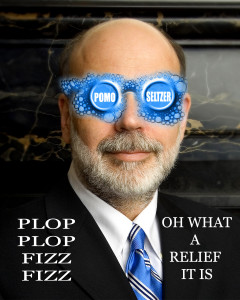
As with the last post, I continue in a personal vein.
In 1989 I went away to Biola University. This was an exciting time in my life for many reasons.
I met my lovely wife (in freshman orientation!), traded my trombone (uncool) for an acoustic guitar (cool), moved to Southern California, got involved in John Wimber’s Vineyard church, and in the winter term of my freshman year, in January, I discovered Philosophy. There’s a lot I could say about all of this, but I’ll try to stick to things which are somehow relevant to my thinking about God and Jesus.We’ll get more theological as we go along.
- Philosophy. I took an intro class with a prof named Delbert Hanson, whom I remember fondly. (He passed away in 2002.) He was the first in his family to go to college. He got his PhD late in life, from USC, and spent his whole career teaching a heavy course load (eight classes a year, I believe) at Biola. When I first met him, his nordic looks, white sideburns, and glasses reminded me of Isaac Asimov. In his life he published one book, which was savaged by at least one reviewer. He was very kind to me, and spent a good amount of time talking philosophy with me, transmitting to me that insatiable curiosity and dissatisfaction with pat answers that is typical of philosophers. He was open-minded, positive, and curious, always learning new things, unlike a good many people at that stage of life. I doubt that I would be in the profession if he hadn’t been there. He also expected me to plow through heavy tomes of historical philosophy like Hume’s Treatise of Human Nature and Kant’s Critique of Pure Reason. Not having any T.V. or Internet in my room, I gladly did this, and for the first time started to really work at school. (I coasted rather bored through high school, and like many Americans to some extent wasted my youth on T.V.) From his longtime friend and colleague David Ciocci I got my first tastes of Plato, philosophy of mind, and other topics. I didn’t connect as much with him personally, but he was and is a good thinker and lecturer. At the time, these two were the entire Philosophy department at Biola.
- Theology. The two systematic theologians I remember taking classes with at Biola left me cold. One guy especially was just going through the motions. In his class you would literally fill in the blanks on these books of outline notes (with blanks) that you’d buy. I remember reading the Charles Ryrie systematic theology that was assigned, and sometimes I’d want to agree with one of things Ryrie was arguing against. But the prof was uninterested in discussing anything, in or out of class. In contrast, the textual specialists (those focused on OT on NT scholarship) seemed intellectually alive, and struck me as admirable people. I especially enjoyed the hilarious OT guy married to an attractive lady maybe 30 years his junior, who loved to lecture on the Song of Songs. 🙂
- Ceasing cessationism. With some excitement and curiosity, my friends and I visited the then famous Anaheim Vineyard Christian Fellowship in the Fall of 1989, and we ended up attending there for a couple of years, also becoming involved in their small groups, termed “Kinship Groups.” In my first year of college I realized I had to decide about this whole cessationism issue, so I read everything I could get my hands on, and scoured the New Testament to see if indeed it taught that certain spiritual gifts were meant to cease upon the close of the biblical canon. I found that there was really no New Testament basis for that claim.
 The cessationist view, I thought, was based on the cessationists’s experience, horror of disorder and discomfort with anything supernatural, and in many cases their personal contempt for non-cessationists. I read an anti-Charismatic book once in which the author mocked a lady who “taught her dog to bark in an unknown bark.” (i.e. barking in tongues) Now, I believe that someone claimed this for their o-so-spiritual-doggie, but what really does this have to do with the issue? Against cessationism, I found testimonial evidence from many Christians, ancient and recent. I eventually saw enough of these things first and second hand to become convinced of their reality. Buy me a beer some time and I’ll tell you some stories. This was the first case where I examined the Bible for myself (of course, listening to arguments from both sides) and found that it simply didn’t say what some people strongly insisted that it did – people who loudly declared that the Bible was the infallible guide for everything they did, and the sole basis for their theology. Thus I learned of the giant mis-match that can exist between people’s religious rhetoric and their actual beliefs and practice.
The cessationist view, I thought, was based on the cessationists’s experience, horror of disorder and discomfort with anything supernatural, and in many cases their personal contempt for non-cessationists. I read an anti-Charismatic book once in which the author mocked a lady who “taught her dog to bark in an unknown bark.” (i.e. barking in tongues) Now, I believe that someone claimed this for their o-so-spiritual-doggie, but what really does this have to do with the issue? Against cessationism, I found testimonial evidence from many Christians, ancient and recent. I eventually saw enough of these things first and second hand to become convinced of their reality. Buy me a beer some time and I’ll tell you some stories. This was the first case where I examined the Bible for myself (of course, listening to arguments from both sides) and found that it simply didn’t say what some people strongly insisted that it did – people who loudly declared that the Bible was the infallible guide for everything they did, and the sole basis for their theology. Thus I learned of the giant mis-match that can exist between people’s religious rhetoric and their actual beliefs and practice. - Vineyard. Aside from the whiz-bang stuff, what was really distinctive about the Vineyard was their Kingdom of God theology, directly influenced by New Testament scholar George Eldon Ladd. At the time they didn’t talk a lot directly about this, but I absorbed it somewhat, as they presupposed it in their theology and ministry there. At the time my wife and I were more focused on their enchanting worship music, which was peaking at the time, and their unselfconscious way of connecting with God through singing, and through various kinds of prayer. Vineyand found and pastor John Wimber was a winsome person, a hilarious story teller, and he could be an excellent preacher, and a good, imaginative exegete of the gospels. In the early 1990s, the Vineyard entered the throes of some real weirdness, first with prophecy and prophets, then with “revival”, and eventually the “Toronto Blessing” phenomena. We didn’t get too much involved in any of those things; I adopted a sort of interested agnostic stance about a lot of it. Meanwhile, we joined a church plant, a Kinship group that had decided to become another Vineyard church. We loved the people there, and I occasionally ran sound and played in the band.
- Anti-anti-intellectualism.There was a tension between my growing interest in Philosophy and my Vineyard-type
 spirituality. They were more non-intellectual, really, than anti-intellectual. But my father was very anti-intellectual, referring, half-seriously, to seminaries as “cemeteries.” To him, pursuing arguments, seeking evidence, precise analysis – these were sure signs of the sin of pride, and were avoided by the spiritual. Some people in the Vineyard were like this too – like the guy we once met who had a graduate degree in theology, but God (he said) had told him to burn all his theology books – not because they contained important falsehoods (or at least, not mainly because of this) but because, you know, they were keeping him from God somehow. We didn’t believe that he’d heard correctly. But I was much concerned about pride – my own, that is. In I think my junior year, J.P. Moreland arrived at Talbot, which cross-listed its classes with Biola – full of hyperactive energy, zealous passion, and an abundance of opinions. At first I was put off by him – surely he of all people was corrupted by pride. But I found that this was a shallow mis-judgment on my part. One day in class, he did what I recognized to be prophesying, in the Pauline sense. This blew me away. I realized that belief in supernatural Christianity needn’t be accompanied by ignorance or a slap-dash, careless intellectual style, as with some people who had been held up as models at the Vineyard. This ultimately freed me to consider graduate study in Philosophy. Before, like many an evangelical church kid, I sort of assumed that really spiritual people went into ministry in one way or the other. I went on to profit greatly from J.P.’s rigorous classes in contemporary epistemology, philosophy of science, and metaphysics. He even converted me, for a good while, to full blown Platonic realism about universals. Incidentally, J.P. has since joined the Vineyard – the church Wimber pastored until his death in 1997, and the one we used to attend c. 1989-92.
spirituality. They were more non-intellectual, really, than anti-intellectual. But my father was very anti-intellectual, referring, half-seriously, to seminaries as “cemeteries.” To him, pursuing arguments, seeking evidence, precise analysis – these were sure signs of the sin of pride, and were avoided by the spiritual. Some people in the Vineyard were like this too – like the guy we once met who had a graduate degree in theology, but God (he said) had told him to burn all his theology books – not because they contained important falsehoods (or at least, not mainly because of this) but because, you know, they were keeping him from God somehow. We didn’t believe that he’d heard correctly. But I was much concerned about pride – my own, that is. In I think my junior year, J.P. Moreland arrived at Talbot, which cross-listed its classes with Biola – full of hyperactive energy, zealous passion, and an abundance of opinions. At first I was put off by him – surely he of all people was corrupted by pride. But I found that this was a shallow mis-judgment on my part. One day in class, he did what I recognized to be prophesying, in the Pauline sense. This blew me away. I realized that belief in supernatural Christianity needn’t be accompanied by ignorance or a slap-dash, careless intellectual style, as with some people who had been held up as models at the Vineyard. This ultimately freed me to consider graduate study in Philosophy. Before, like many an evangelical church kid, I sort of assumed that really spiritual people went into ministry in one way or the other. I went on to profit greatly from J.P.’s rigorous classes in contemporary epistemology, philosophy of science, and metaphysics. He even converted me, for a good while, to full blown Platonic realism about universals. Incidentally, J.P. has since joined the Vineyard – the church Wimber pastored until his death in 1997, and the one we used to attend c. 1989-92.
Still, to this point, I had not engaged in serious thought about the Trinity or Incarnation. As best I could tell, pretty much no one around me had either. But J.P. was an exception. One day in class – I forget which – he shocked us all. “Jesus is not God – that is, Jesus is not identical to God.” What? How can he say this? Isn’t this heresy? He knew he was shocking us. Simple – he explained the self-evidence of Leibniz’s Law, better called the Indiscernibility of Identicals. Some things are true of one, which are not true of the other – whether by “God” you mean the Father or the Trinity. Ergo, they aren’t one and the same thing. That a thing can’t at one time differ from itself; this is as certain as 1+1=2.
I didn’t and still don’t know that J.P.’s views on the Trinity are. In any case, I don’t recall being presented with a “social” Trinity theory, on which the Trinity are a group or a composite of divine selves. (A version of this is argued for in a book he co-authored with Dr. William Lane Crage – but I believe that Craig wrote that chapter.) I’m pretty sure I’d never heard this anywhere up to this point, although it had been discussed in theological circles for some time. (There are many things discussed in theology which are never heard of in evangelical churches.) I would have been puzzled by the claim that God is some non-self like a group, or a composite of selves which was not a self. Of course God was self – you talk to him, right, and hope he talks back somehow. There are three persons in God? That’s nice – and shame on those naughty cultists for denying it – but the whole point of Christianity is to have a person-to-person relationship with God, right? Like countless evangelicals, I insisted “It’s a relationship, not a (mere) religion!”
 As an undergraduate student I had brief flings with double-predestination Calvinism (based on reading, or I now think, mis-reading Paul’s letter to the Romans), and a totally implausible truth- and knowledge- relativism, ala postmodernism, after reading a bewitching book by an English professor at some Christian college somewhere – kind of a pre-Brian-McLaren. I was just unable to separate junk pseudo-philosophy from good philosophy. At the time I thought the book was some kind of revolutionary discovery. But it was just pseudo-sophisticated rubbish.
As an undergraduate student I had brief flings with double-predestination Calvinism (based on reading, or I now think, mis-reading Paul’s letter to the Romans), and a totally implausible truth- and knowledge- relativism, ala postmodernism, after reading a bewitching book by an English professor at some Christian college somewhere – kind of a pre-Brian-McLaren. I was just unable to separate junk pseudo-philosophy from good philosophy. At the time I thought the book was some kind of revolutionary discovery. But it was just pseudo-sophisticated rubbish.
My fellow philosophy majors kindly pummeled me over these claims (e.g. that some claim could be true for one culture, but not true for some other culture), and my mentor Dr. Hanson gently rolled his eyes at it. When I had really absorbed more logic and epistemology, I was forever cured of the “postmodern condition.”
I have lived happily since then in the often considered extinct “modern” era, where people believe that a statement is true just in case the world really is that way, and where people don’t think that all standards of evidence are arbitrary creations of culture. I came to find out that these convictions really had nothing to do with smug over-confidence in one’s own beliefs, or in the oppression of people with dissenting views.
Coinciding with my extreme Calvinist phase was an inordinate love of mysteries (I mean, of apparent contradictions). I thought that “rationalistic” (proud and overconfident) people were always going around resolving inconsistencies that should just be left to stand, lest we deny half of what divine revelation is saying. Freewill vs. all-encompassing predestination? Both! Is God one or three? Both! How dare we throw away half of what God has revealed? I don’t remember specifically what got me off this mystery kick, which was a much less developed version of this. I think I just realized that this sort of thing was, in general, not a good intellectual strategy. It is not what analytic philosophers typically do when they run into a problem. Better to admit that I just couldn’t resolve those problems, and continue to think about them as best I can. So I still didn’t know what to think about divine providence or the Trinity, but I stopped denouncing and looking down on people to tried to discover a consistent way of thinking about them. My extreme mysterian stance was simply not required by Christian (or philosophical) humility, nor was it obviously implied by how much greater than us God is.
I’m not proud of these flings, but they help me to keep things in perspective when my students now glom on to implausible but fashionable claims. I will sometimes offer objections, but I always to to respect them, and communicate with them where they’re at. It’s more important to aid their intellectual development than it is to disabuse them of confused beliefs they’ll probably grow out of anyway. That’s how I’d want people to treat me, and I’m happy to say that that was how most treated me when I was spouting postmodernist or mysterian nonsense.
Eventually, graduate school would equip me to return to both issues – divine providence and the Trinity. But in my senior year at Biola, I really threw myself into my studies, and got all I could out of my classes. I’d also gotten married between my junior and senior years. So with a good wife, good college friends, and a good, small church, I had a great base to work from. And finally convinced that one could be both an intellectual and a spiritual Christian, I decided that graduate school in Philosophy was the only course that made sense for me.

Dale,
I had a similar experience in that the “charismata” issue was the first one I remember encountering among the different denominational Christians I met in high school. I remember attending youth groups at both a church that didn’t believe in the continuation of the (miraculous) spiritual gifts and at one where the Youth Pastor regularly claimed to be “praying in tongues.”
Since I was raised Catholic, I think this was my first exposure to any doctrinal “issues” that separated Christians in the different denominations. The next issue I remember dealing with was “water baptism” and then the various different perspectives on biblical eschatology.
It wasn’t until I had spent a lot of time studying the different perspectives on those three subjects that I felt it was time to reconsider the Trinity doctrine as well. By that time, I was in my early 20s and was mature enough to realize that there were probably some folks who didn’t believe in the Trinity doctrine because there were substantial arguments that could be offered against it. I decided to take a fresh look at the evidence and am still trying to sort it all out today!
Comments are closed.